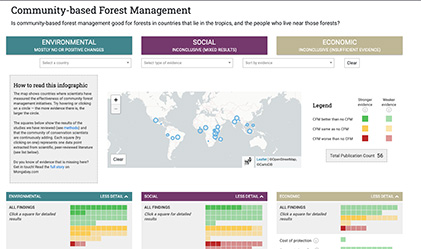Nature-based Solutions News
Nature-based Solutions (NbS) are actions to protect, sustainably manage, and restore natural and modified ecosystems that address societal challenges effectively and adaptively, simultaneously providing “human well-being and biodiversity benefits,” according to the International Union for Conservation of Nature. In an essay, University of Oxford’s Nature-based Solutions Initiative Director Nathalie Seddon underscored that to “qualify as an NbS, an action must sustainably provide one or more benefits for people while causing no loss of biodiversity or ecological integrity compared to the pre-intervention state.” To be sustainable and equitable, NbS must also be designed, implemented, managed and monitored by or in partnership with indigenous peoples and local communities through a process that fully respects and champions local rights and knowledge, and generates local benefits, the essay adds. NbS is an ‘umbrella concept’ for other established ‘nature-based’ approaches such as ecosystem-based adaptation (EbA) and ecosystem based mitigation, eco-disaster risk reduction and green infrastructure. More recently, the term ‘natural climate solutions (NCS)’ entered the lexicon. NCS also falls under the umbrella of NbS, but refers explicitly to conservation and management actions that reduce greenhouse gas (GHG) emissions from ecosystems and harness their potential to store carbon. This series attempts to highlight the Nature-based Solutions from around India while ensuring credibility, impacts as well as pitfalls and limitations of such solutions.




































